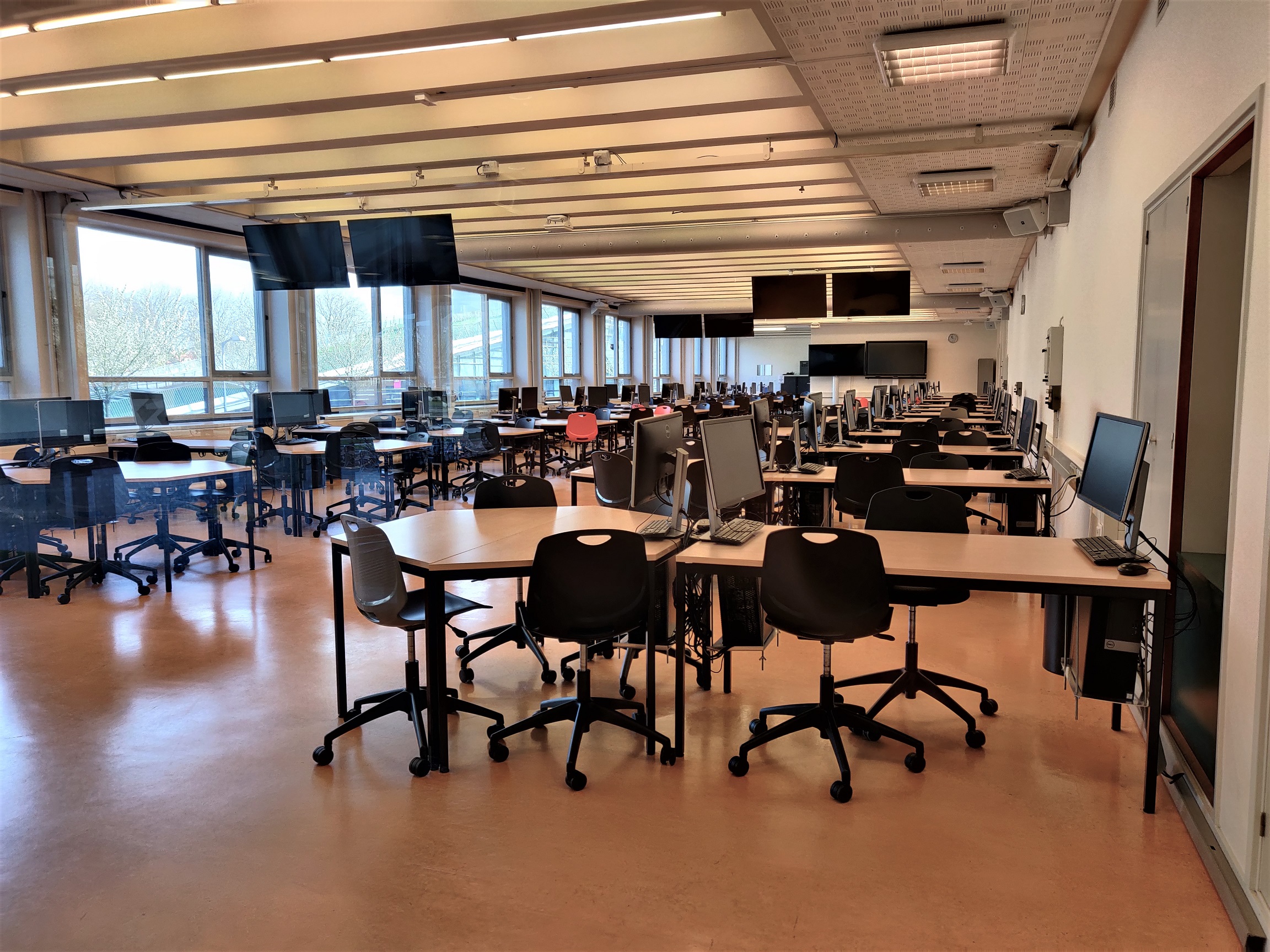Given the coronavirus situation, there will be no lectures and teaching will be done digitally. Vice Rector Magnificus Rob Mudde explains what TU Delft is doing.
An empty lecture hall at the Faculty of Applied Sciences. (Photo: Marjolein van der Veldt)
“We are concentrating on what we already have in-house to ride out the next three weeks,” explains Mudde. “Take the Collegerama, most highly attended bachelor lectures are already covered in this video platform, and most students already know how it works. Of course, the availability of lectures varies by degree programme and module.”
What happens if a module has nothing on Collegerama? Will students then have a lesson by livestream? Mudde says that this is not an option. “We give so very many lectures that the bandwidth does not allow us to stream all of them. We also don’t want to overburden our IT department. Their main job now is to keep the system going.”
This means that experimenting or developing new online methods at TU Delft-wide scale will not happen, says Mudde. “You need to test new methods first before you start deploying them, so we are now concentrating on what we can do quickly and well.”
We just have to wait and see how this will take shape. “At the moment the teachers are thinking hard to come up with solutions,” says Mudde. “In any case, much of the communications will be through Brightspace. Assignments and explanations can be put there and teachers can collect all the questions for a Q&A.” Individual teachers or groups have their own ways of working. Some use YouTube while others use other options on the internet. “Our teachers are very creative and determined,” says Mudde.
Laboratory courses and exams
And what about laboratory courses? People may not gather in groups, but what about individual students? “The objective of the policy is to limit physical contact wherever possible. There is no other option than to temporarily stop large laboratory courses. Students who work in separate small rooms, may be able to continue with their laboratory work. This depends on the degree programme.”
Graduation presentations will go ahead as planned, says Mudde, as they involve small groups of people. But there will be no public in attendance. And, if necessary, teachers can attend through Skype.
‘We only needed to cancel a handful of midterms’
Mudde believes that TU Delft is lucky in terms of exams. “The exam period is only in four weeks’ time and this week we only needed to cancel a handful of midterms.”
Mudde is reluctant to speculate about a lengthy period without teaching in person, but TU Delft has the technology ready to do exams online. This is not the preferred method as it involves a mandatory quality control that is done through ‘proctoring’. This is a system that looks over the shoulder of the students to make sure they are working alone with no external help or aids. It also means that teachers cannot use their standard exams as everything has to be input through the keyboard. “Should we reach this point, we will have to devise a lot of solutions on the spot. But we have to see as have not yet reached that point.”
Netflix off, book open
For the next few weeks, Mudde is calling on students to be flexible and responsible. “Act in accordance with the authorities’ recommendations.” He sees that the student associations are drastically ‘scaling down’. “We appeal to students to minimise contact with others and to avoid vulnerable groups. Don’t give big parties at home. We can all pull together to help society. And if you’re tired of Netflix after a couple of days, grab a course book or the Collegerama. Use this time productively. Let’s beat this thing together.”
Do you have a question or comment about this article?
m.vanderveldt@tudelft.nl


Comments are closed.